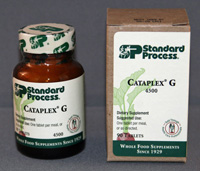
|
Fat & Nutrient Facts You Can Learn From the %DV!What's a %DV?You can also use the %DV to compare similar products or to help you balance food choices throughout the day. "For example, if you eat a favorite food that's high in fat at one meal, balance it with low-fat foods at other times of the day," says Kulakow. Or use the %DV when comparing foods and claims, for example, to find out which frozen dinner is lower in saturated fat--particularly when it involves a comparative nutrient claim, such as reduced-fat. "You don't need to know the precise definition of 'low' or 'reduced,'" says Kulakow. "Just look at the Percent Daily Value and see which product is higher or lower in the nutrient you are interested in." The %DVs are based on a 2,000-calorie daily diet. But even if you eat more or less than 2,000 calories, the %DV still gives you a frame of reference to gauge your calorie and nutrient intake. "Too often, people use the food label only when they want to restrict calories and fat--but not as a tool to help them increase the nutrients they need to get in adequate or greater amounts," says Kulakow. While restricting calories is important for weight loss, getting adequate amounts of fiber, calcium, and other key nutrients is also critical to good health. Kulakow advises caution when choosing foods that are labeled "fat-free" and "low-fat." Fat-free doesn't mean calorie-free. To make a food tastier, sometimes extra sugars are added, which adds calories. So dieters should always check the Nutrition Facts panel to get complete information, says Kulakow. Next: Controlling Weight Through Increasing Physical Activity Previous: Are You Getting 100 Percent of the Nutrients You Need? Adapted from: Losing Weight: Start By Counting Calories
|
|
||||||||||||||||||
|


